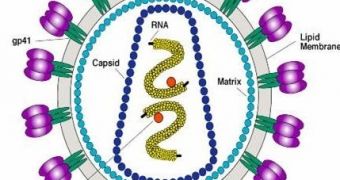HIV entered China in the 1990s mainly through the non checked blood plasma-buying network and infected transfusions in hospitals. But now, sex has bypassed drug syringes as the main factor of HIV transmission in China, and this could lead to a booming of the infection spread from high-risk categories to the overall population, as signaled by a new report made by UNAIDS and a committee of the State Council, China's Cabinet, and released on World AIDS Day.
There were 50,000 new Chinese HIV cases registered in 2007, raising the overall number of HIV patients in China to 700,000.
"Despite a fall in the rate of new cases since the data were last collected in 2005, infections were still spreading, and sex-not intravenous drug use-was now the main form of transmission. China's HIV epidemic remains one of low prevalence overall but with pockets of high infection," said Health Minister Chen Zhu.
"The current rate of infection is less than 1% of China's overall population, but as many as 50 million more are at risk now that the main form of transmission is sex. Prostitutes and gay men were singled out in the report for risky behavior that was contributing to most of the new cases," said Chen.
The report revealed that about 60% of the Chinese prostitutes do not employ condoms on a regular basis, and even if illegal, the phenomenon counts millions of women in China.
The more open approach of the Chinese government in recent years towards the HIV issue led to the promising of anonymous testing, free treatment for the poor, and a fight against discrimination against HIV infected persons. Still, HIV infected Chinese people still experience tough discrimination in many communities and workplaces, and this translates in the avoidance of the suspects to be tested or to admit they have the disease. This makes that the number of official HIV cases in China to be of just 223,501.
"The report shows how far the government has come in responding to HIV. They've come to the realization that high-risk groups need more attention, and they recognize that civil society groups have more of a role in reaching out to the more vulnerable." said Ed Settle, who works on HIV/AIDS issues for UNDP China.

 14 DAY TRIAL //
14 DAY TRIAL //